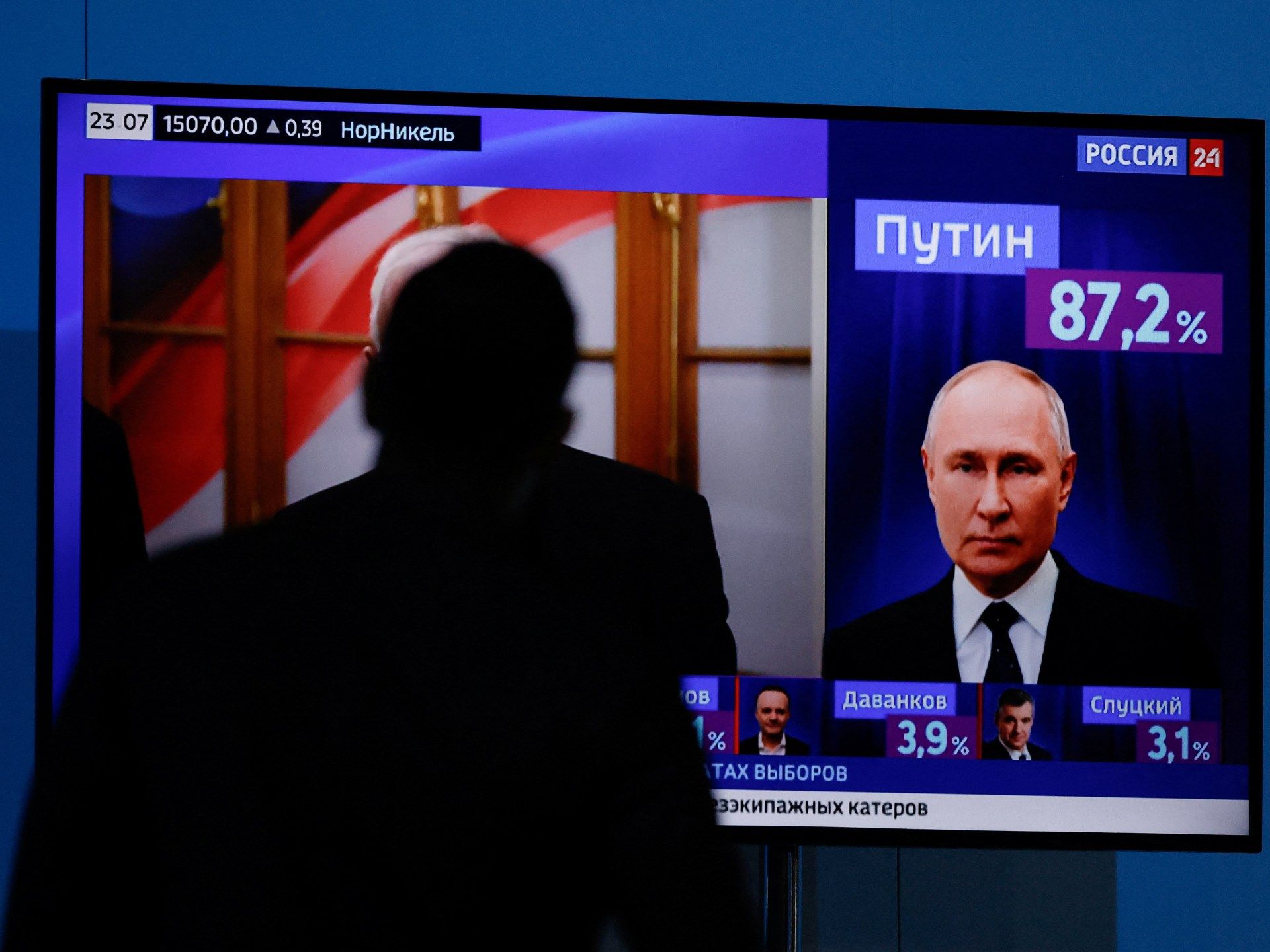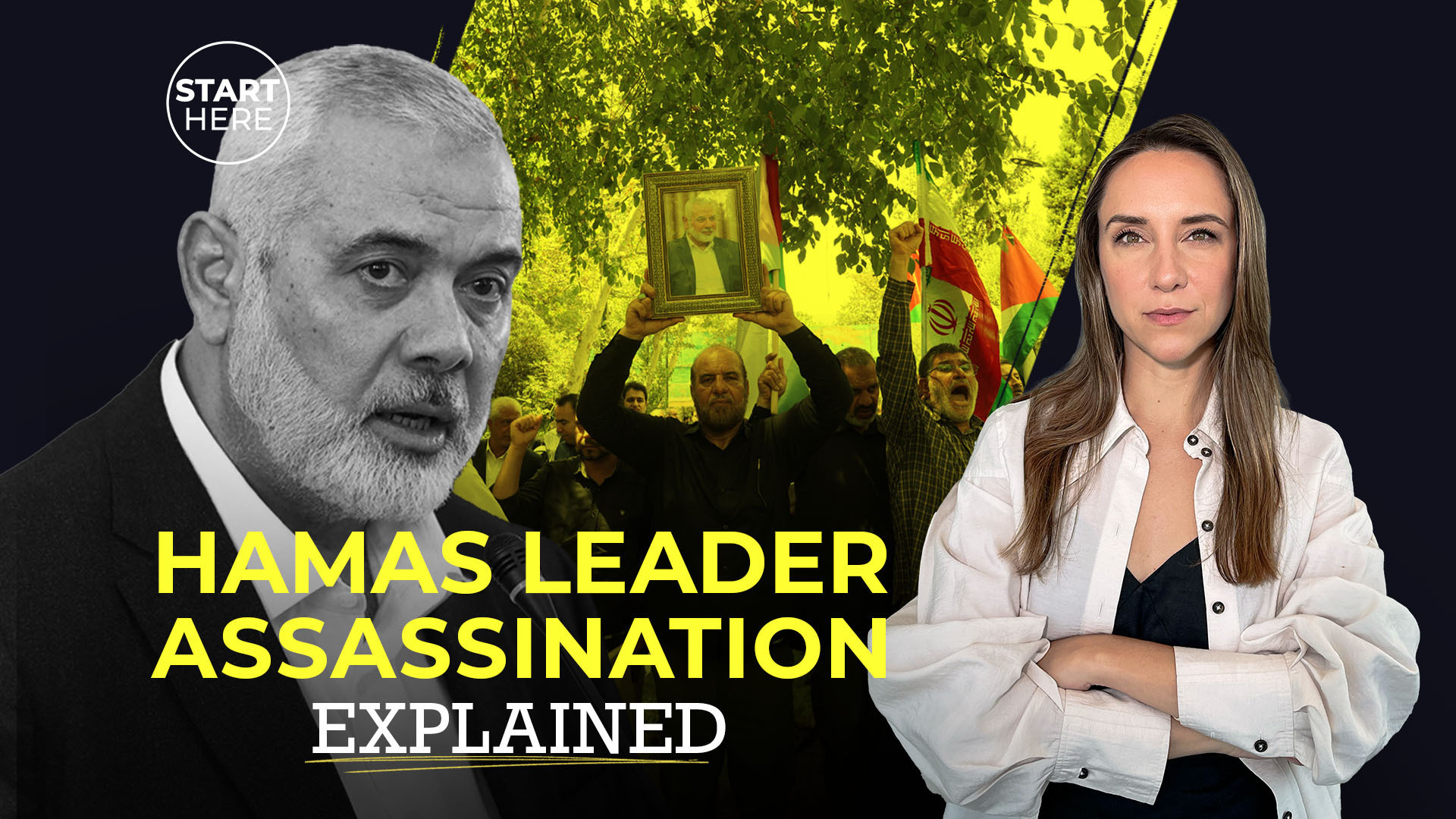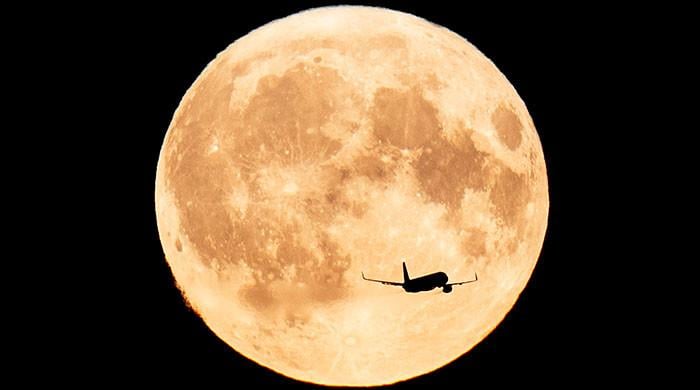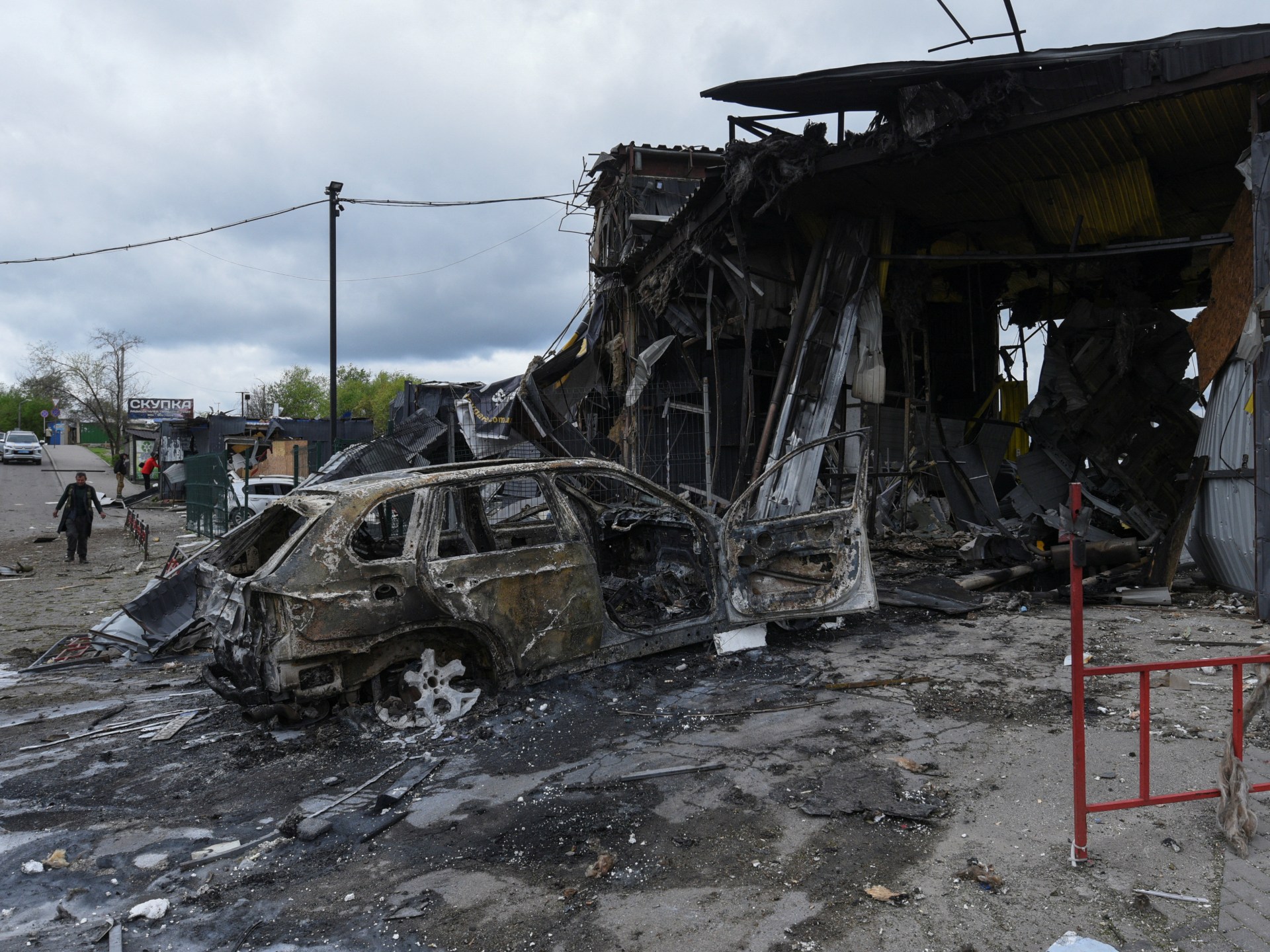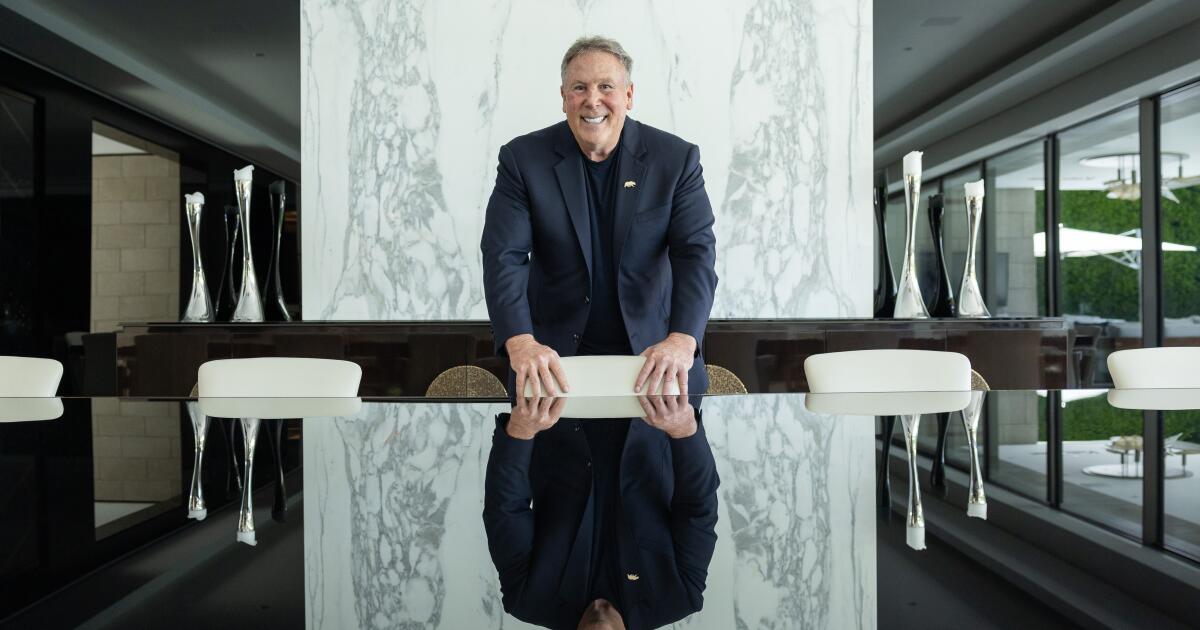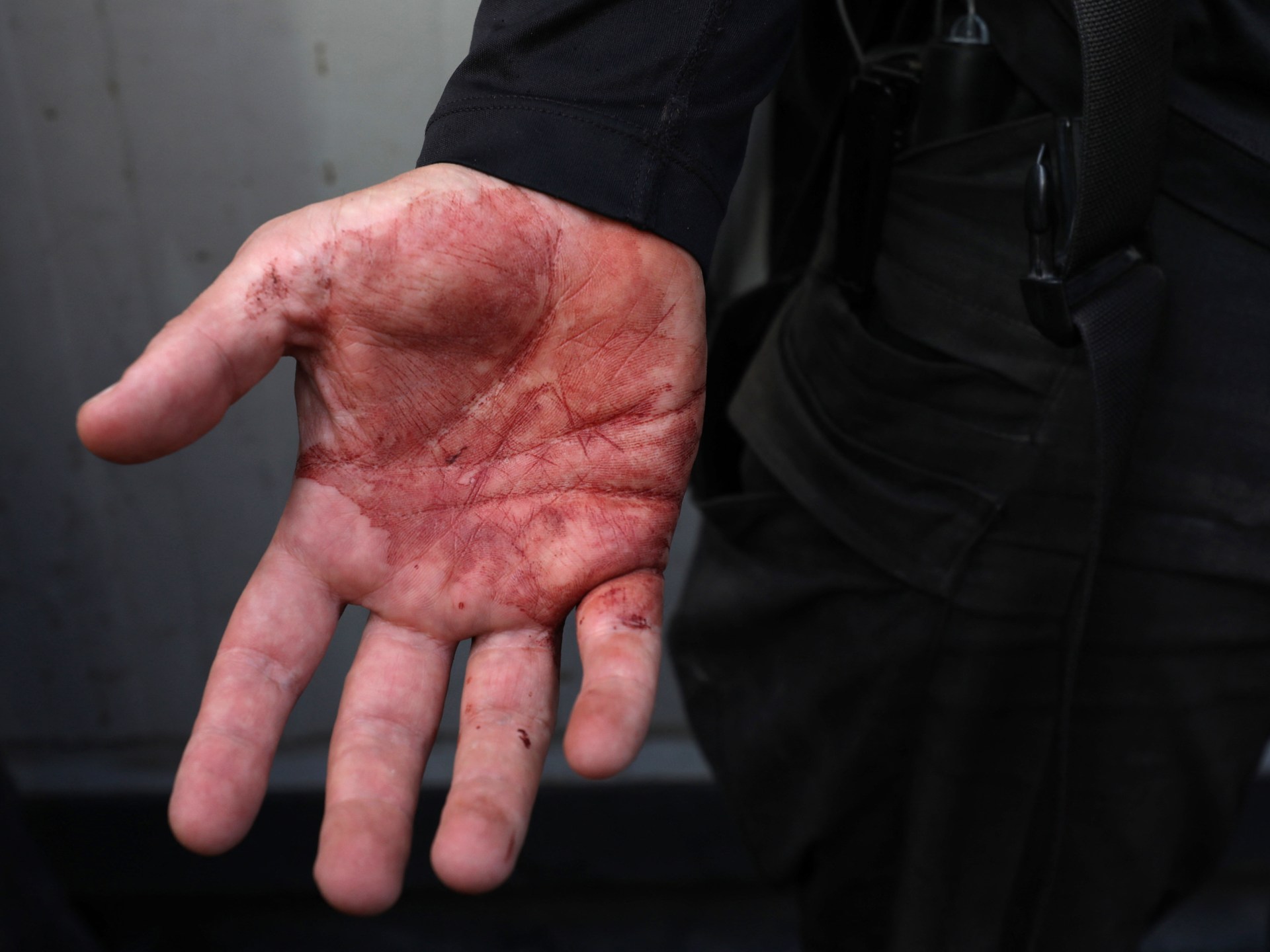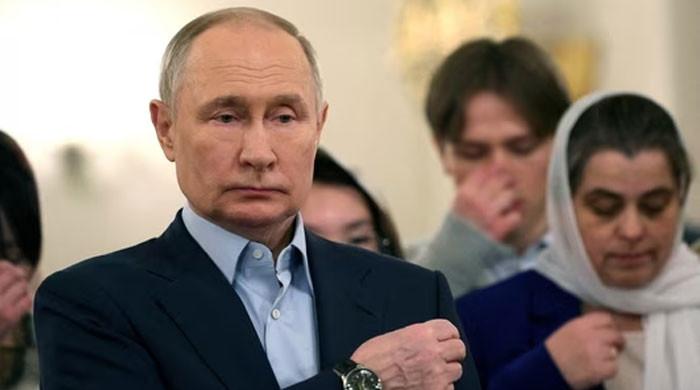Early results show Putin won about 87 percent of the vote, the highest result ever recorded in Russia's post-Soviet history.
President Vladimir Putin is set to win a record post-Soviet landslide victory in Russia's elections, consolidating his grip on power, even though large numbers of opponents staged a midday protest at polling stations.
Shortly after the last polls closed on Sunday, the first results pointed to the conclusion that everyone expected: that Putin would extend his rule of almost a quarter of a century for six more years.
According to Russia's Central Election Commission, he won about 87 percent of the vote and about 60 percent of electoral districts were counted. The result means Putin, 71, will surpass Josef Stalin to become Russia's longest-serving leader in more than 200 years.
Communist candidate Nikolai Kharitonov came second with just under 4 percent, newcomer Vladislav Davankov third and ultranationalist Leonid Slutsky fourth, early results suggested.
Nationwide turnout was 74.22 percent when polls closed, election officials said, surpassing 2018 levels of 67.5 percent.
For Putin, a former KGB lieutenant colonel who first came to power in 1999, the result is intended to underscore to the West that its leaders will have to contend with an emboldened Russia, whether in war or peace, for many years to come. .
The United States said the vote was neither free nor fair.
“The elections are obviously neither free nor fair, given that Mr. Putin has imprisoned political opponents and prevented others from running against him,” the White House National Security Council spokesman said.
In Ukraine, President Volodymyr Zelenskyy said that “this electoral fraud has no legitimacy and cannot have it.”
The election came more than two years after Putin's full-scale invasion of Ukraine in February 2022, Europe's deadliest conflict since World War II.
On Sunday, thousands of Putin's opponents staged a protest against him, although there was no independent count of how many of Russia's 114 million voters participated in the demonstrations.
Supporters of Putin's most prominent opponent, Alexey Navalny, who died in an Arctic prison last month, had called on Russians to attend a “Noon Against Putin” protest.
Putin was first nominated as acting president when former Russian President Boris Yeltsin resigned. He then won his first presidential election in March 2000 and a second term in 2004.
After two terms as president, Putin returned to prime minister in 2008 to circumvent a constitutional ban on serving more than two consecutive terms as head of state.
But he returned to the presidency in 2012 and won a fourth term in 2018.

